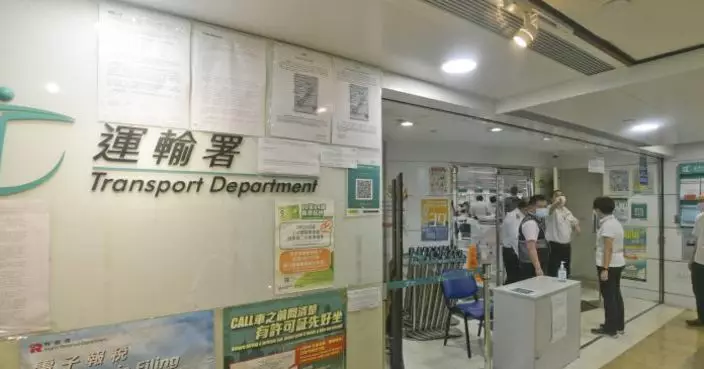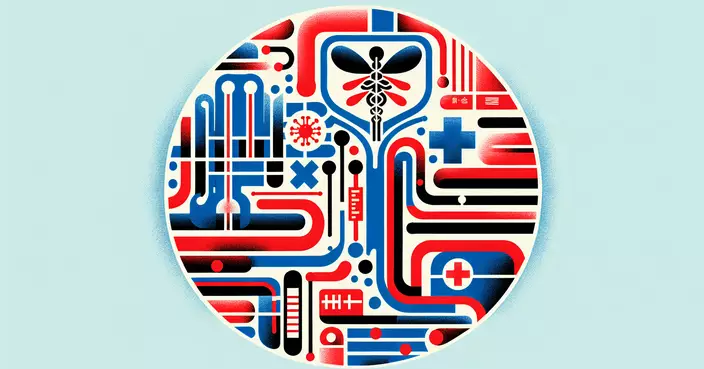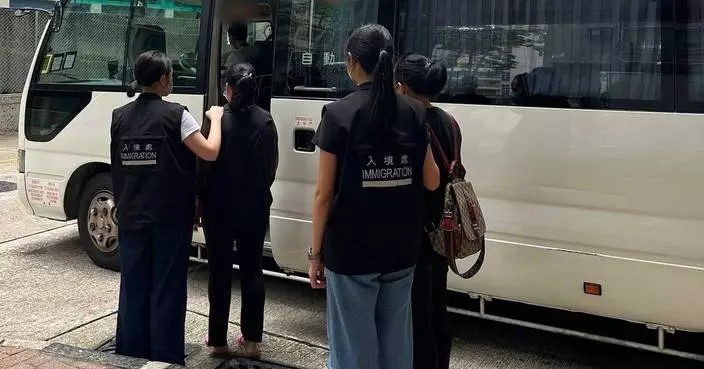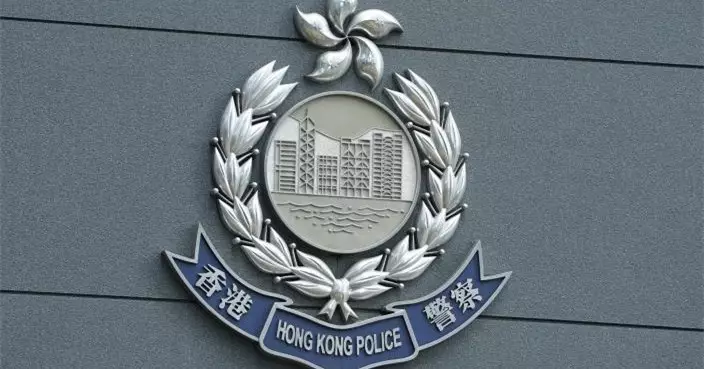Exciting updates to new energy transport fund subsidies
âThe technological development of electric vehicles is rapid. To focus the New Energy Transport Fund (the Fund) on subsidising trials on new energy technologies that are more suited or better placed in meeting the needs of the transport sector, thereby expediting their green transformation, the Environment and Ecology Bureau has timely reviewed the subsidy framework, approach and levels under "Applications for Trial" of the Fund. The Steering Committee of the Fund has supported the use of a revised subsidy arrangement with the adoption of a merit-based approach in assessing all applications that are being processed.
The revised subsidy arrangement shall enable the Government to make the best use of the Fund for promoting the green transformation of the transport sector. For details of the revision, please visit the website of the Fund (www.eeb.gov.hk/en/new-energy-transport-fund.html) or call the enquiry hotline on 2824 0022.
The Government has put in place the Fund since March 2011 to subsidise the testing and encourage wider use of green innovative transport technologies for a variety of commercial transport tools including goods vehicles (including special purpose vehicles), taxis, light buses, buses, vessels, motorcycles, non-road vehicles, or the aforesaid transport tools of charitable/non-profit making organisations providing services to their clients. The technologies to be subsidised include new energy vehicles or vessels, conversion of in-use conventional vehicles or vessels to new energy vehicles or vessels, and after-treatment emission reduction devices or fuel saving devices applicable to vehicles or vessels. Transport operators and charitable/non-profit making organisations may apply for trying out different green technology products subject to a maximum subsidy of $10 million for each application and a total subsidy of $12 million for each applicant. The Fund completed its review in September 2020 to expand the subsidy scope and refine the subsidy level and ceiling.
As of March 2024, the Fund has approved 319 trials involving a total subsidy of $272 million. A total of 180 approved trials under the Fund have been completed. Trial reports have been uploaded to the Fund's website.

Source: AI-generated images
Chp on high alert as imported measles case sparks investigation
The Centre for Health Protection (CHP) of the Department of Health (DH) is today (May 14) investigating an imported case of measles infection and reminded the public that vaccination is the most effective way to prevent measles, and people born outside Hong Kong who might not have received a measles vaccination during childhood should review their vaccination history.
The case involves an 11-month-old girl with good past health. She developed fever, cough and runny nose since May 7, and rash since the following day. She was brought to the Accident and Emergency Department of Pok Oi Hospital on May 9 and admitted to Tuen Mun Hospital on May 10 for treatment. Her respiratory specimen sample tested positive for the measles virus upon nucleic acid testing. She is now in stable condition and is still hospitalised. Her two household contacts remained asymptomatic.
An epidemiological investigation revealed that the patient was born outside Hong Kong and did not receive measles vaccinations in her home country. She lived overseas during the incubation period and arrived in Hong Kong on April 23. The patient did not have contact with measles patients in Hong Kong. The case has been identified as an imported case. During the communicable period, the patient had visited the Immigration and Registration of Persons - Yuen Long Office (Yuen Long Office) located on Kiu Lok Square, Yuen Long, between around 10am and 11.30am on May 6. The CHP will conduct medical surveillance on about 40 staff of the concerned office.
As measles is highly infectious, the CHP has set up an enquiry hotline (2125 2374) for contact tracing of the case. The CHP appealed to the persons who visited the Yuen Long Officelocated on Kiu Lok Square, Yuen Long, between 10am and 11.30am on May 6 to call the hotline. Officers of the CHP will assess their conditions and offer suggestions. The hotline will operate from 9am to 1pm tomorrow (May 15), and from 9am to 5.30pm starting from May 16, Monday to Friday (excluding public holidays).
Investigations are ongoing.
"The global immunisation coverage rates have dropped since the COVID-19 pandemic. Many countries worldwide are facing a resurgence of measles outbreaks. According to the World Health Organization (WHO), the number of measles cases had risen worldwide to over 300 000 cases reported in 2023, a roughly 80 per cent increase from 2022. The Western Pacific region recorded a total of about 5 000 cases in 2023, which representedmore thana 2.5 timeswhen compared with 2022, with persistent transmission found in the Philippines and Malaysia. In view of the continuous increase in measles cases, the WHO has urged parents to bring their children to get vaccinated as early as possible to prevent measles from spreading," a spokesman for the DH said.
The CHP reiterated that vaccination is the most effective way to prevent measles. During the COVID-19 pandemic over the past three years, parents, schools and healthcare workers in Hong Kong continued to support childhood immunisations, striving to maintain the immunisation coverage rates at a high level. As revealed by the vaccination uptake of primary school students and the findings of the territory-wide immunisation surveys regularly conducted by the DH, the two-dose measles vaccination coverage has been consistently maintained at a high level, well above 95 per cent, and the local seroprevalence rates of measles virus antibodies reflect that most of the people in Hong Kong are immune to measles. On the whole, the information available indicates that the risk of large-scale outbreak is considered to be low in Hong Kong. However, it is possible for some not fully vaccinated people to get infected and transmit the measles virus to susceptible people (including children aged below 1 who are not due for the first dose of measles vaccine).
The spokesman reminded members of the public that delays in vaccination will weaken the protection for children against measles, and parents are reminded to maintain up-to-date vaccination for their children for comprehensive and timely protection. All people who are non-immune to measles, especially foreign domestic helpers, people working or studying in tertiary institutions, and workers of sea/land/air border control points who may be at a higher risk of contacting an imported case, should receive two doses of measles-containing vaccine. In general, people can be considered as non-immune to measles if they (i) did not have the infection confirmed by laboratory test before, and (ii) had not received two doses of measles-containing vaccines in the past, or have unknown vaccination status or unknown immunity against measles. On the other hand, as measles was endemic in Hong Kong and most parts of the world before 1967, people born before 1967 are considered to have acquired immunity to measles through natural infection.
The spokesman supplemented that, members of the public who are planning to travel to places with a high incidence or outbreaks of measles should review their vaccination history and past medical history, especially people born outside Hong Kong who might not have received a measles vaccination during childhood. Those who have not received two doses of measles-containing vaccines, with unknown vaccination history or unknown immunity against measles, are urged to consult their doctor for advice on vaccinations at least two weeks before departure.
The spokesman advised, "The incubation period (the period from infection to appearance of illness) of measles ranges from seven days to 21 days. Symptoms of measles include fever, skin rash, cough, runny nose and red eyes. If symptoms arise, members of the public should wear surgical masks, stop going to work or school and avoid going to crowded places. They should also avoid contact with non-immune persons, especially persons with weakened immunity, pregnant women and children aged below 1. Those suspected to have been infected are advised to seek medical attention as early as possible and reveal relevant contact history of measles to healthcare professionals."
Besides being vaccinated against measles, members of the public should take the following measures to prevent infection:
For more information on measles, the public may visit the CHP'smeasles thematic page. Members of the public who are going to travel can visit the website of the DH'sTravel Health Servicefor news of measles outbreaks outside Hong Kong.

Source: AI-generated images











